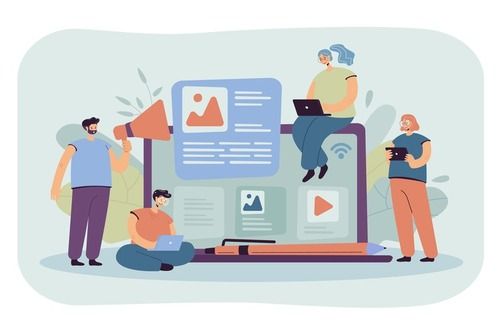The Impact of AI on Content Creation

Artificial Intelligence (AI) is revolutionizing content creation by automating tasks, enhancing creativity, and improving efficiency. These advancements are shaping the future of content creation. Here's how:
1. Automated Content Generation
AI tools can now generate written content, including blog posts, product descriptions, and even news articles. These tools use natural language processing (NLP) to create coherent, well-structured text based on given inputs, reducing the time needed for content production.
Example: AI-powered platforms like GPT-based models can generate articles, summaries, and reports at scale, enabling content creators to produce more in less time.
2. Content Personalization
AI can analyze user behavior, preferences, and past interactions to deliver personalized content. Whether it's recommending articles, videos, or products, AI helps tailor content to individual users, improving engagement and satisfaction.
Example: Streaming services like Netflix or news platforms like Flipboard use AI to curate personalized content based on viewing habits and preferences.
3. Content Optimization
AI-powered SEO tools can optimize content for search engines by suggesting the right keywords, structuring content for readability, and analyzing competitors. This ensures that content not only resonates with readers but also ranks well on search engines.
Example: AI-driven tools like SEMrush and Clearscope offer insights into keyword density, competitor analysis, and on-page SEO improvements to enhance content visibility.
4. Multimedia Creation
AI isn’t limited to text—it is also transforming multimedia content creation. From generating high-quality images and videos to creating audio content, AI is capable of producing visually appealing and engaging media.
Example: Tools like DALL·E can generate images from text descriptions, while AI-driven platforms like Lumen5 turn blog posts into engaging videos.
5. Improving Content Quality
AI tools like Grammarly or Hemingway help writers improve the quality of their work by suggesting grammar improvements, sentence structure changes, and readability adjustments. This assists in refining content for a better user experience.
Example: Grammarly’s AI analyzes the tone, grammar, and clarity of written content, ensuring it is polished and professional.
6. AI-Assisted Creativity
AI can enhance creativity by providing suggestions, inspiration, and new ideas that content creators may not have considered. For example, AI can suggest different headline options, generate creative prompts, or even help brainstorm new content ideas.
Example: Platforms like Copy.ai and Writesonic offer creative content generation tools to help marketers brainstorm headlines, product descriptions, and more.
AI is drastically changing the landscape of content creation, from automating repetitive tasks to enabling hyper-personalization and improving SEO. While AI cannot fully replace human creativity, it serves as a powerful tool to augment human capabilities, allowing content creators to work more efficiently and effectively. As AI continues to evolve, its role in content creation will only grow, offering new opportunities for innovation in the digital marketing and content production industries.